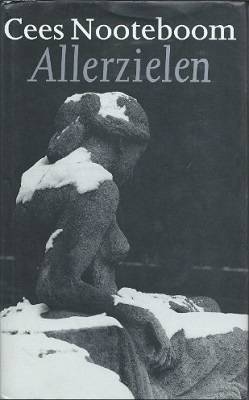 First edition (Dutch) | |
| Author | Cees Nooteboom |
|---|---|
| Original title | Allerzielen |
| Translator | Susan Massotty |
| Language | Dutch |
| Publisher | Uitgeverij Atlas |
Publication date | 1998 |
| Publication place | Netherlands |
Published in English | 2001 |
| Pages | 398 |
| ISBN | 9045223414 |
All Souls' Day (Dutch : Allerzielen) is a 1998 novel by the Dutch writer Cees Nooteboom. It tells the story of a Dutch documentary filmmaker who lives in Berlin, and reflects, with his friends, on matters such as art, history, and national characters.